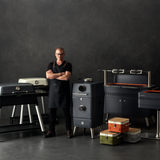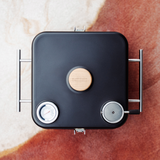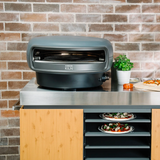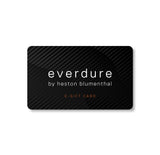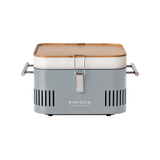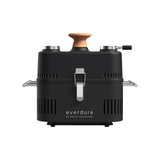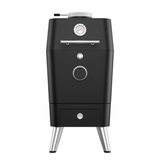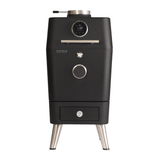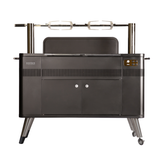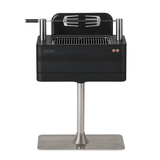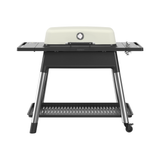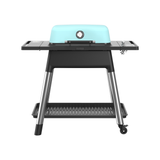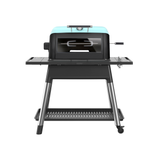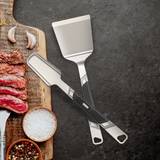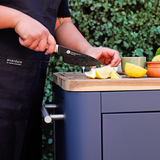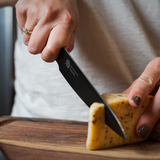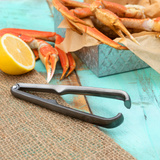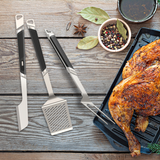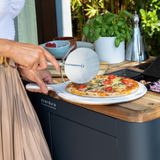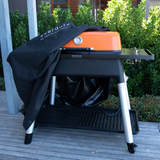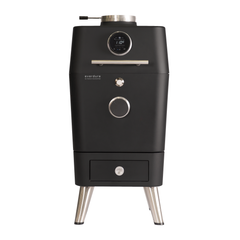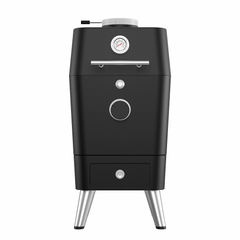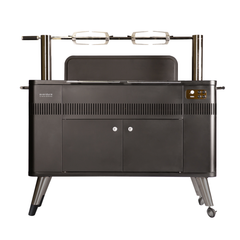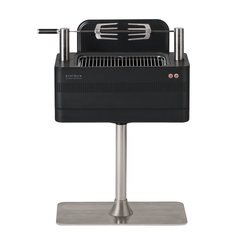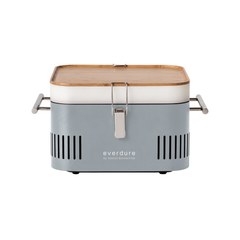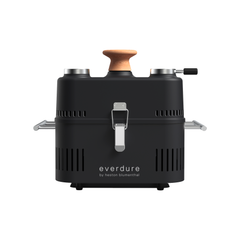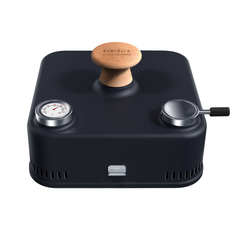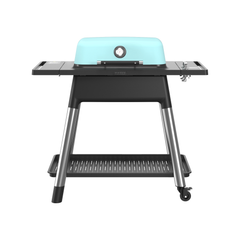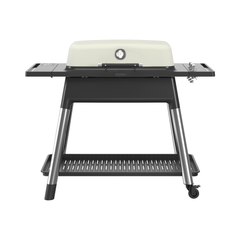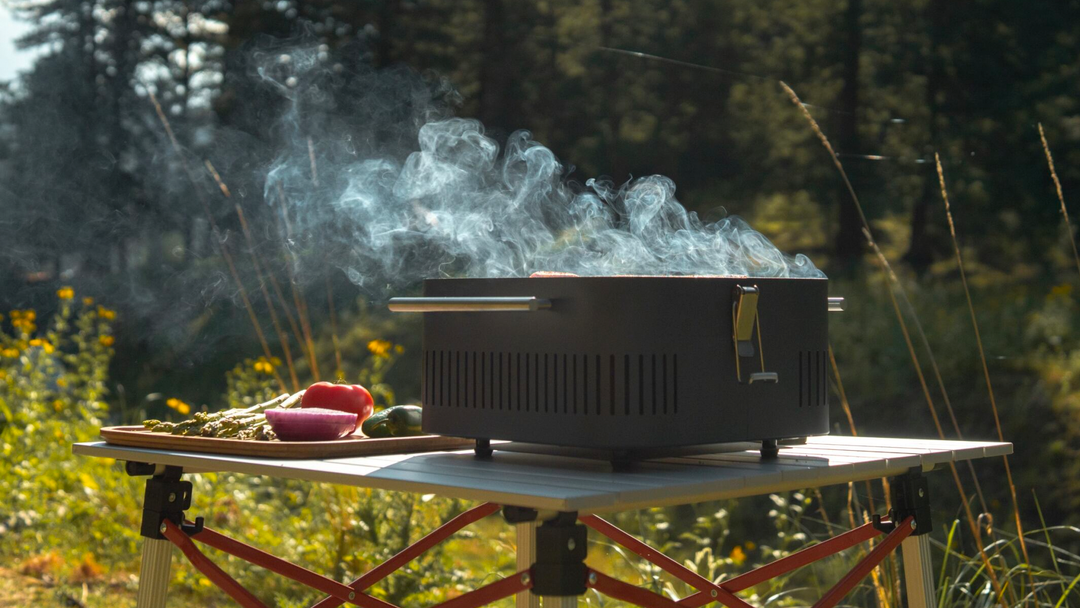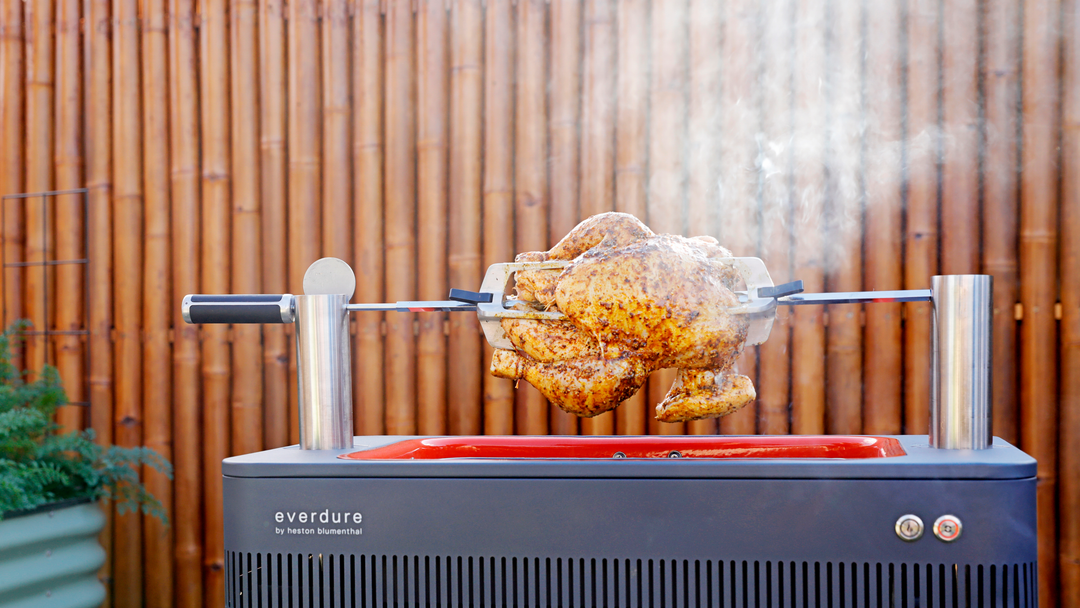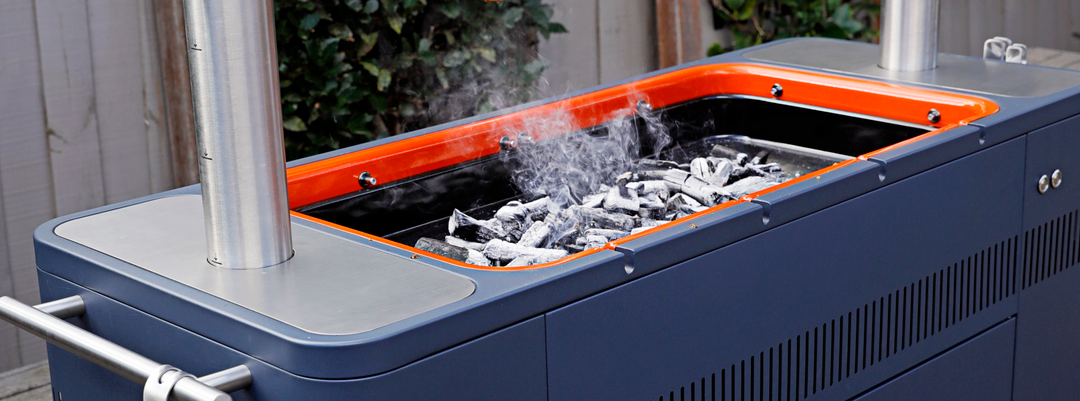Charcoal barbequing offers an exceptional and authentic way to infuse smoky flavours into your favourite dishes.
However, it's not without its challenges, and one of the most common issues is flare-ups. Those unexpected bursts of flames can quickly turn a pleasant grilling experience into a frustrating one.
In this blog, we'll explore practical tips and techniques to help you take control of flare-ups and master the art of charcoal barbequing.
What Causes Flare-Ups?
Flare-ups occur when fat or grease from the food drips onto the hot coals, causing a sudden and often intense flame. Here's how you can keep them in check:
1. Use the Two-Zone Cooking Method
One of the most effective ways to control flare-ups is by using the two-zone cooking method. This setup involves creating two distinct zones on your charcoal grill:
- Direct Zone: One side of the grill is loaded with hot coals for direct high-heat cooking.
- Indirect Zone: The other side is left without coals, creating a cooler area for food that needs gentler cooking or for the purpose of moving food away from flare-ups.
By having these two zones, you can quickly move food away from the flames in case of flare-ups, allowing it to cook indirectly until the flames subside.
2. Trim Excess Fat
One preventive measure against flare-ups is to trim excess fat from your meat before barbequing. The less fat dripping onto the coals, the fewer chances of intense flare-ups. However, it's essential to leave some fat for flavour and juiciness.
3. Choose Leaner Cuts
Opt for leaner cuts of meat or poultry when grilling to reduce the amount of fat dripping onto the coals. If you enjoy juicy meats, marinate them with a flavourful, low-fat liquid like a vinegar-based sauce.
4. Precook High-Fat Foods
For high-fat foods like sausages or chicken with the skin on, consider precooking them in an oven or microwave. This reduces the time they spend over the coals, minimising flare-ups.
5. Control Airflow
Regulating the airflow on your charcoal grill can help control the intensity of the fire. Adjust the vents to manage the heat and oxygen flow, which, in turn, can help minimise the risk of flare-ups.
6. Use a Drip Pan
Place a drip pan filled with water or another liquid beneath the cooking grates to catch the fat and juices as they fall. This not only reduces the chances of flare-ups but also adds moisture to the cooking environment.
7. Be Ready with a Spray Bottle
Keep a spray bottle filled with water handy when grilling. If you notice a flare-up starting, lightly spray the flames to quickly extinguish them. This method is effective and doesn't negatively impact the flavour of your food.
8. Adjust the Grill Grate Height
Some grills allow you to adjust the height of the grill grates. Lowering the grates closer to the coals can reduce the distance that fat has to travel before vaporising, which may help prevent intense flare-ups.
Controlling flare-ups when charcoal barbequing is all about preparation, proper techniques, and attentive grilling. By following these tips and understanding the causes of flare-ups, you can ensure that your grilling experiences are not marred by excessive flames.
With practice and a few adjustments, you'll be on your way to mastering the art of charcoal barbequing and enjoying delicious, flame-kissed meals.
